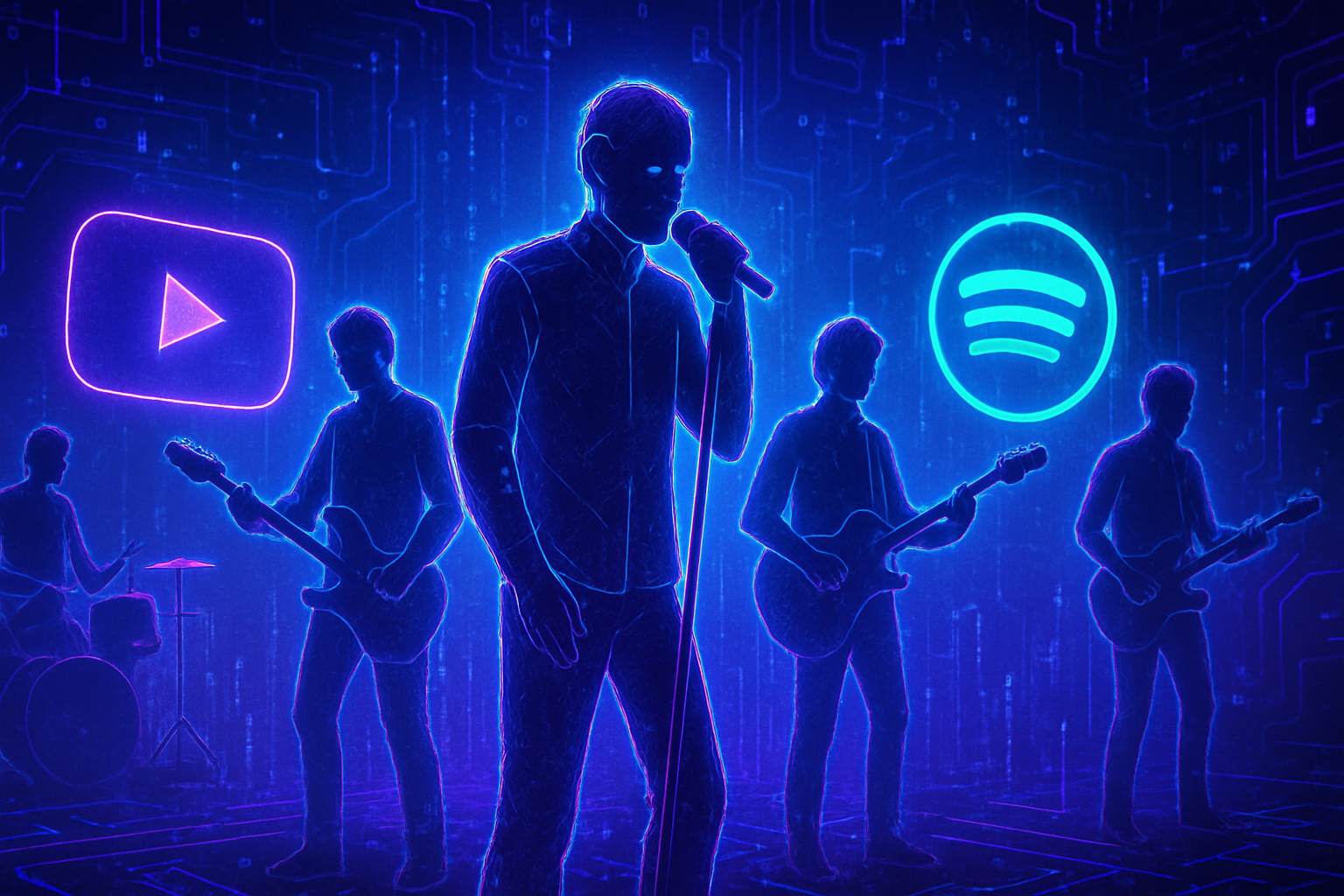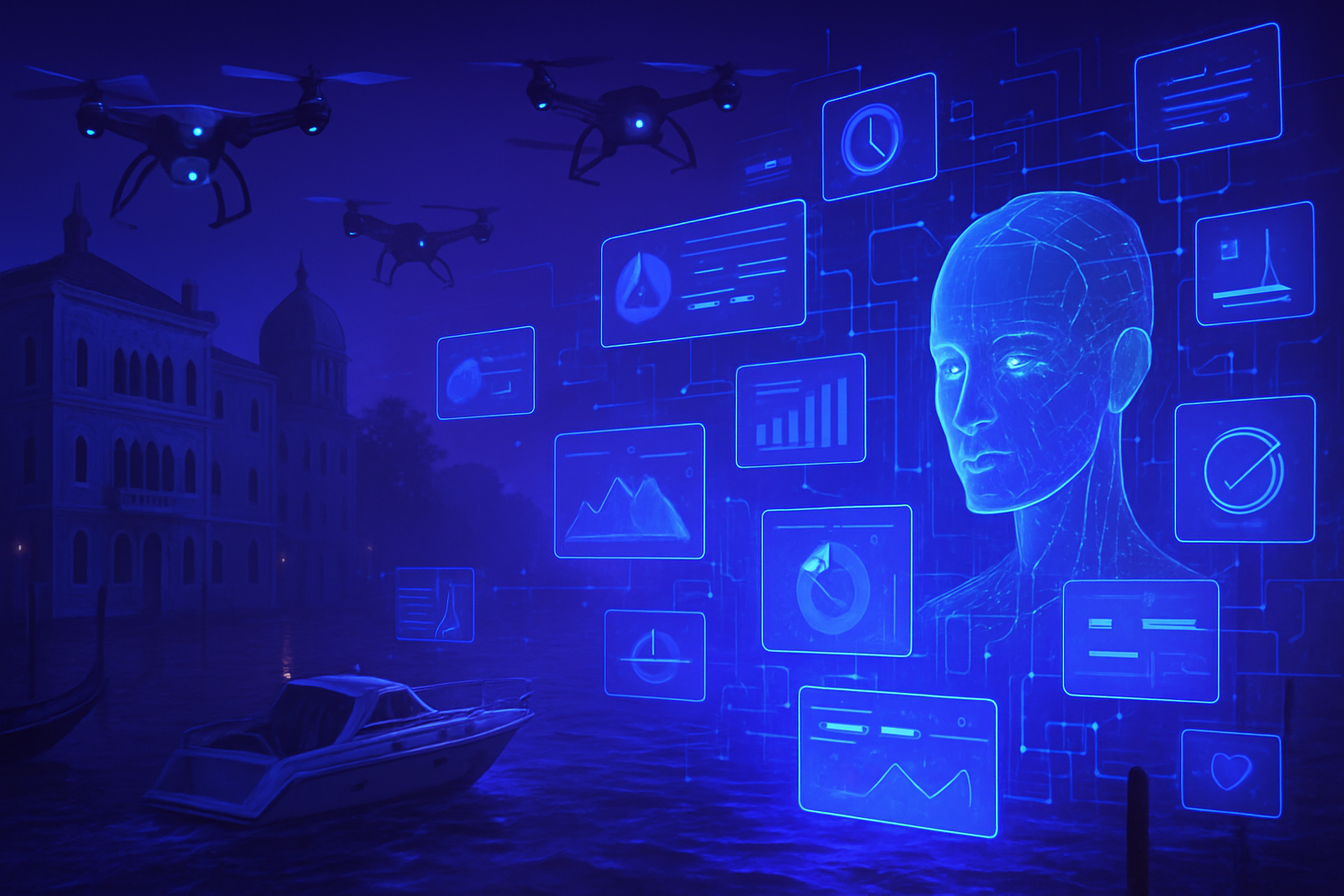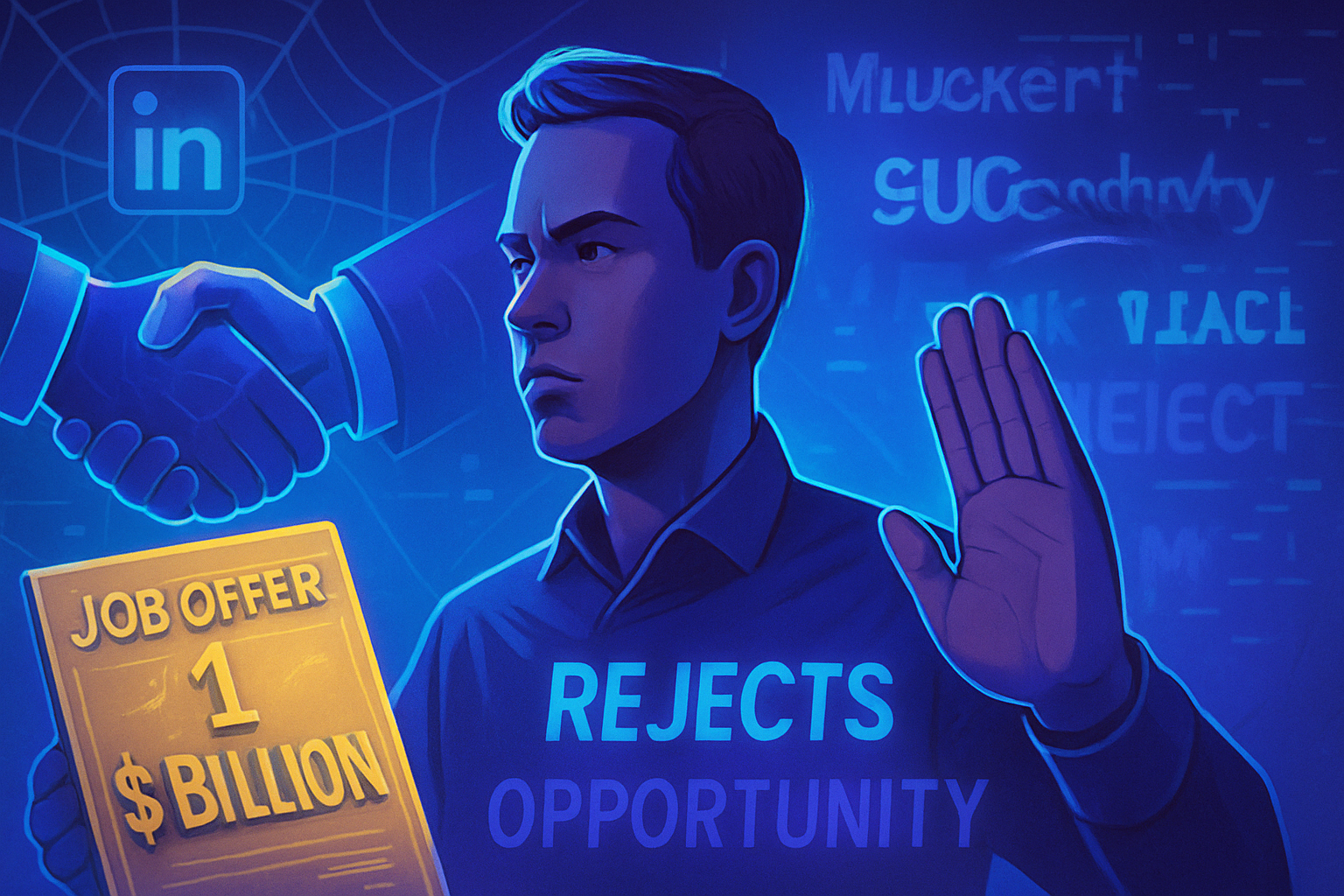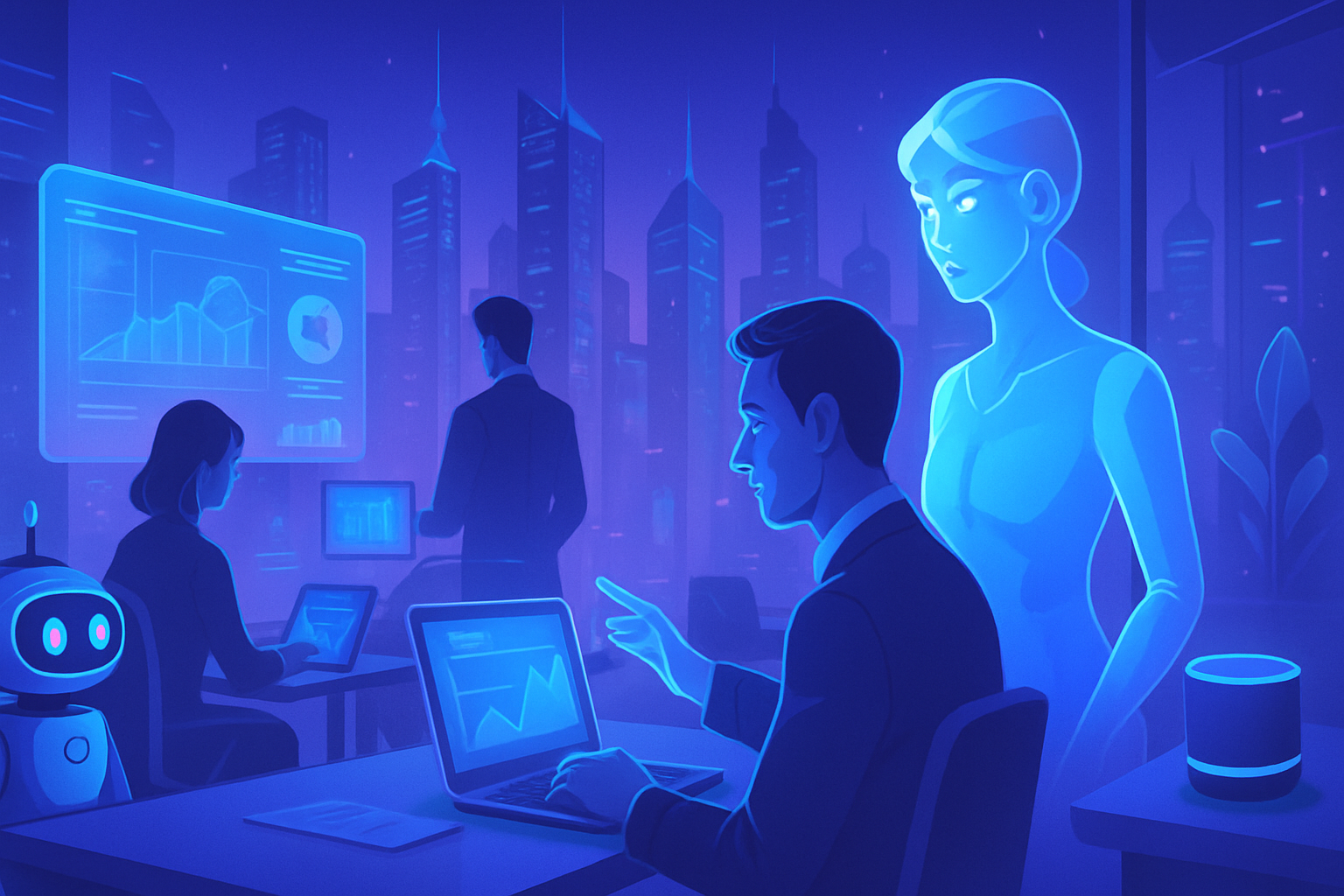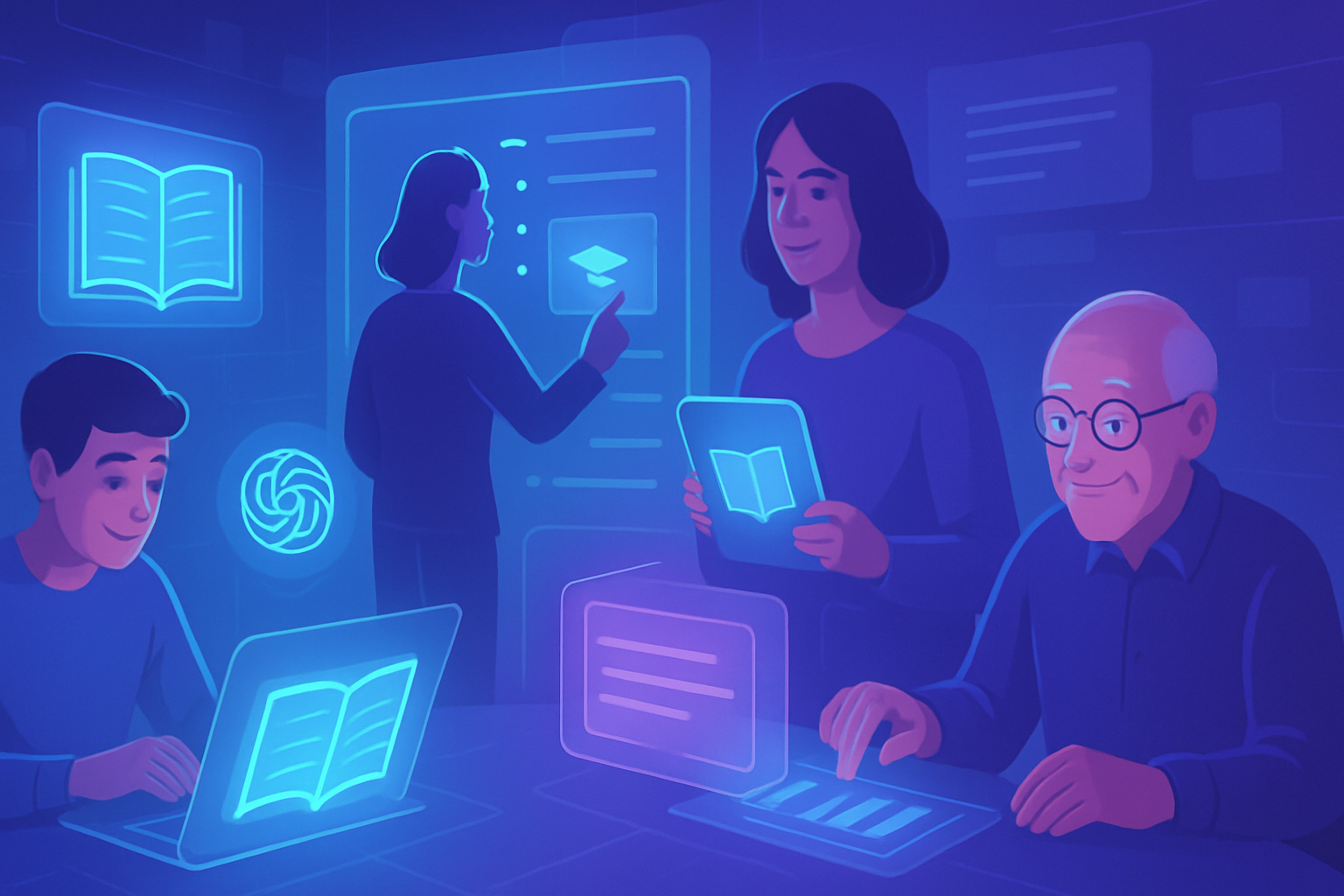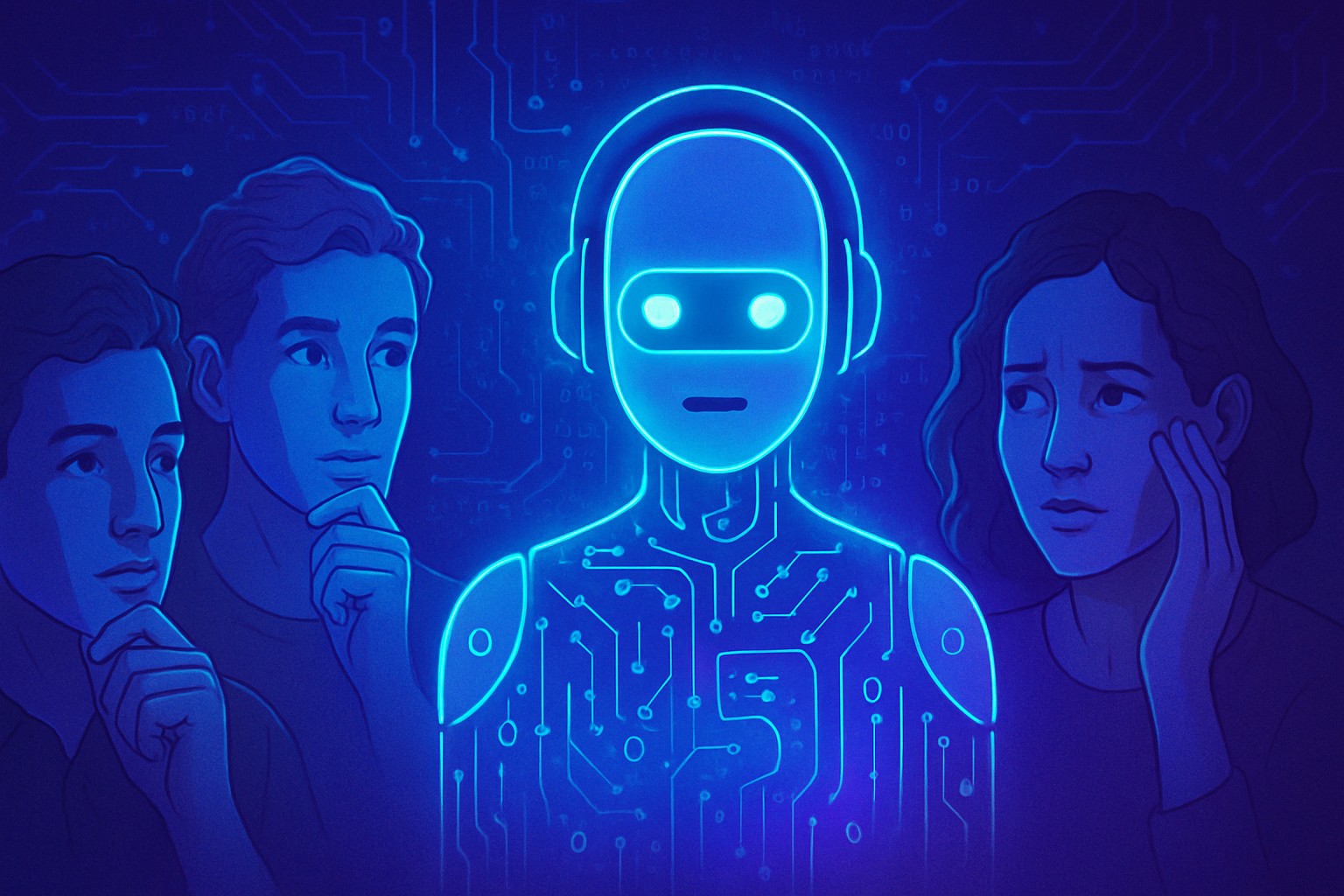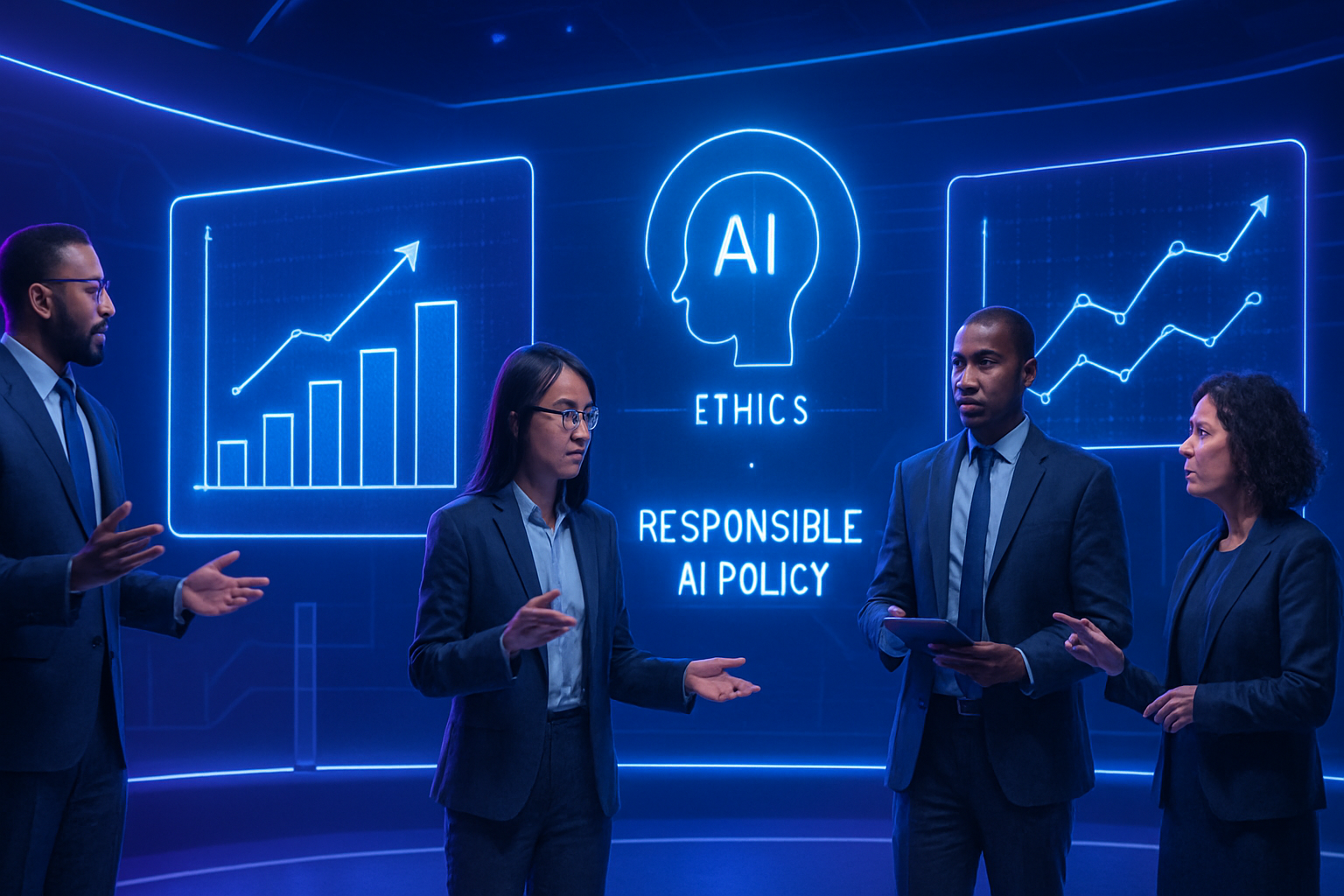Music platforms are experiencing a radical transformation due to the rise of AI-generated fake bands. This evolution raises profound questions regarding the authenticity and value of the music we consume. Listeners are particularly confronted with a multitude of synthetic creations, altering the perception of true artists and unprecedentedly modifying the musical ecosystem.
The daily proliferation of artificially generated tracks calls into question the very nature of human creativity in the music industry. These innovations, although fascinating, force platforms like YouTube and Spotify to reconsider their algorithms, as well as their role in promoting authentic music.
The emergence of AI-generated artists
AI-generated music is multiplying on streaming platforms, creating a complex environment for music enthusiasts. Every day, up to 20,000 new tracks from these technologies are uploaded, according to recent figures. This phenomenon raises questions about artistic authenticity and the origins of musical creations.
A sonic invasion
Music platforms such as Spotify, Deezer, and YouTube are becoming receptacles for these synthetic productions. Tools like Suno allow the generation of voices and melodies, thereby contributing to an unprecedented diversification of the musical offering. This constant flow of new titles poses a challenge for listeners seeking authentic music.
Identity and authenticity of artists
Many AI-generated artists, such as Etta Mae Hartwell, challenge the traditional conventions of the music industry. Etta, whose online presence shines with over seven million streams on YouTube, does not, however, have any real existence. Her creator, Ersan Genç, admitted to designing this artist out of personal interest, raising questions about the notion of authenticity in current music.
Reactions from listeners and producers
Reactions to these synthetic artists vary widely. Some listeners express a feeling of isolation, not recognizing the legitimacy of a voice generated by a machine. Producers, for their part, must navigate a musical landscape where the distinction between human creator and technology becomes blurred, thereby questioning their criteria for success.
The impact on the music industry
This explosion of synthetic artists could transform the music in the long term. Labels and agents are faced with the need to adapt to this new reality. The creation of fictional artists may seem appealing, both for reduced production costs and for the ability to generate continuous content.
Future perspectives
On the horizon, the future of AI-generated artists remains uncertain. Experts envision a rise in these digital creations, but also highlight the likely emergence of regulations aimed at governing their use. The challenge lies in preserving artistic integrity in the face of omnipresent technology.
Frequently Asked Questions
What is the impact of AI-generated fake bands on music streaming platforms?
AI-generated fake bands flood streaming platforms with a high volume of content, which can make it more difficult to discover authentic artists and harm musical diversity.
How do music platforms identify tracks created by AIs?
Platforms like Deezer use internal algorithms to spot and classify synthetic tracks, allowing them to stay informed about the origins of certain music content.
Can AI-generated fake artists be considered real creators?
Although AI-generated music is increasingly complex, these false identities lack human experience, raising questions about authenticity and originality in the music sector.
What role do users play in consuming music from AI-generated artists?
Users play a key role in choosing what they listen to. They need to be aware of the origin of the music they consume and exercise discernment to support authentic artists.
Are traditional artists threatened by the rise of AI-powered fake bands?
Yes, the proliferation of AI-generated fake bands can reduce economic opportunities and exposure for traditional artists, creating unfair competition.
How does this affect the music industry as a whole?
The emergence of AI-generated fake bands is changing the landscape of the music industry, leading to a redefinition of success criteria and business models for artists and labels.
Do copyright laws apply to music produced by AIs?
The question of copyright for music generated by AIs is complex and depends on the laws in place in each country, but generally, a creation without direct human intervention may not be protected.
What precautions can platforms take to limit the impact of fake bands?
Platforms can strengthen their verification tools, establish strict criteria for the authenticity of artists, and raise user awareness of the implications of AI-generated artists.
